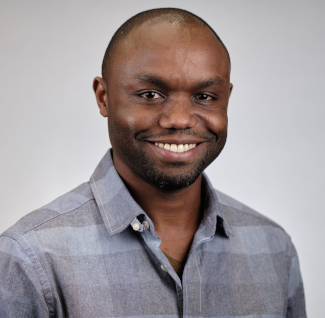PIH Leader in Devex: UN Health Declaration Undermines Equity
Posted on Sep 26, 2019
Truly achieving health care for all will require global solidarity and cannot involve different sets of services for different countries and communities, determined by their wealth and whims of the markets, Dr. Jean Claude Mugunga wrote in an opinion piece published this week in Devex, an online news and information source focusing on global development.
Mugunga is a physician and associate director of monitoring, evaluation, and quality for Partners In Health. His opinion piece follows the United Nations General Assembly’s adoption Monday of a political declaration on Universal Health Coverage (UHC)—a declaration that Mugunga says “definitely doesn’t align” with his beliefs.

“A (version of) UHC that means a few select services for everyone while the rest of the services are left to the market does not serve to promote equity,” Mugunga writes. “It also exaggerates the agency of resource-poor countries to ‘determine’ these sets of services. Overall, this serves to undermine the meaning of health as a human right.”
Mugunga says that for himself and his family, the issue is “not just a policy debate.” He was born in rural Rwanda, shortly after world leaders’ 1978 adoption of the Declaration of Alma Ata had raised hopes of sustainable, equitable global systems that would ensure health care for all.
“We had been excluded from the fruits of modern medicine for the entirety of our lives to date. And this had been painful. Like my four older siblings, for example, I was very prone to malaria-induced fever and seizures,” he writes. “But Alma Ata meant that my mother would no longer have to wait or sell valuable livestock or land to secure user fees to take me to the nearest health facility.
“That hope was short-lived.”
Mugunga describes how, in the decades since, commoditization and privatization of health care has veered the UHC discourse away from the ideals of Alma Ata. He then applies his data analysis expertise to the financing gap for achieving UHC in low- and middle-income countries, and makes the case that high-income countries can bridge that gap with a tiny portion—about 0.18 percent—of their gross national income.
“In an era of globalization, there needs to be an increasingly globalized notion…for who bears responsibility for protecting and fulfilling the right to health,” he writes.
Read Mugunga’s full piece here.

